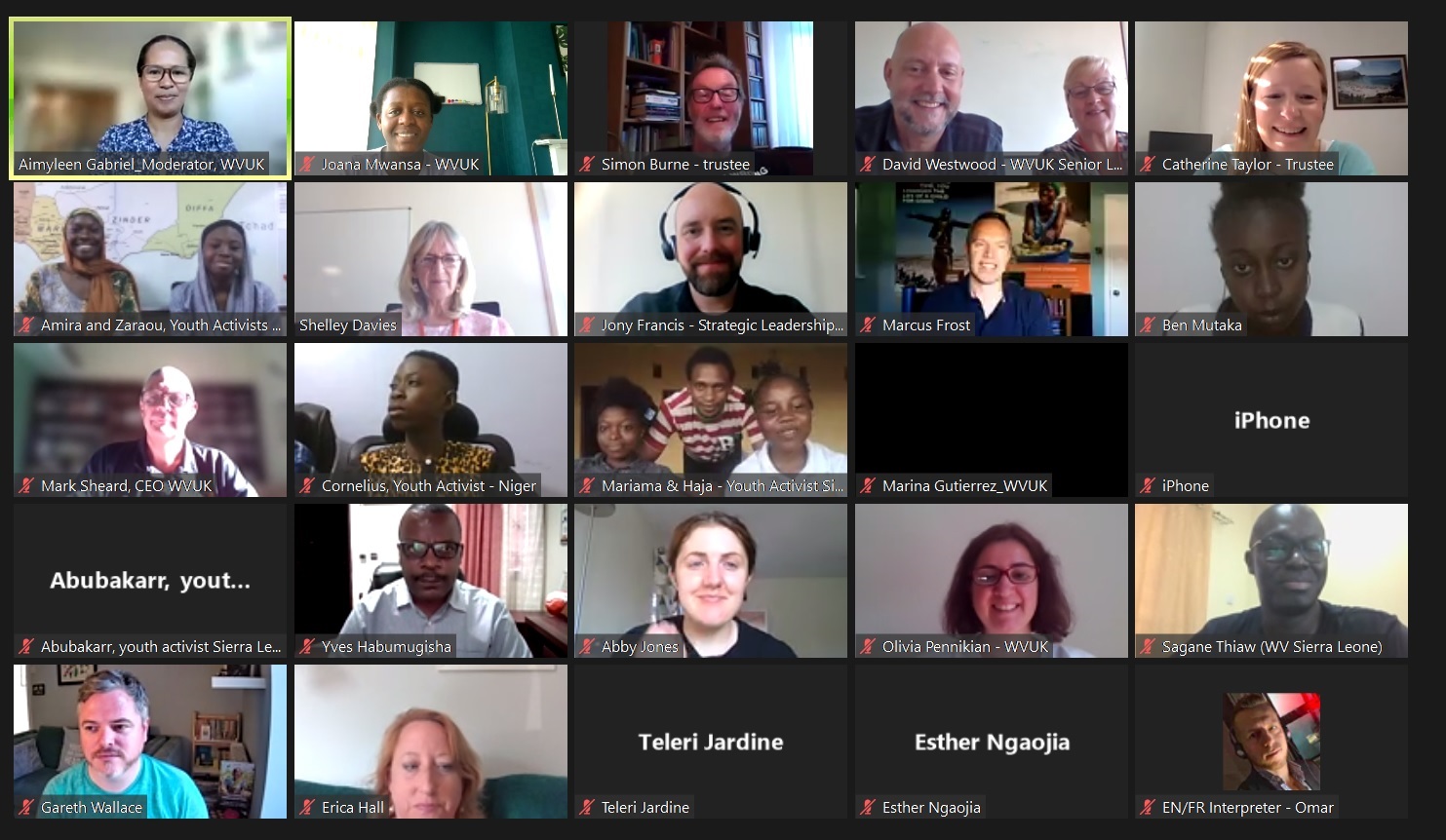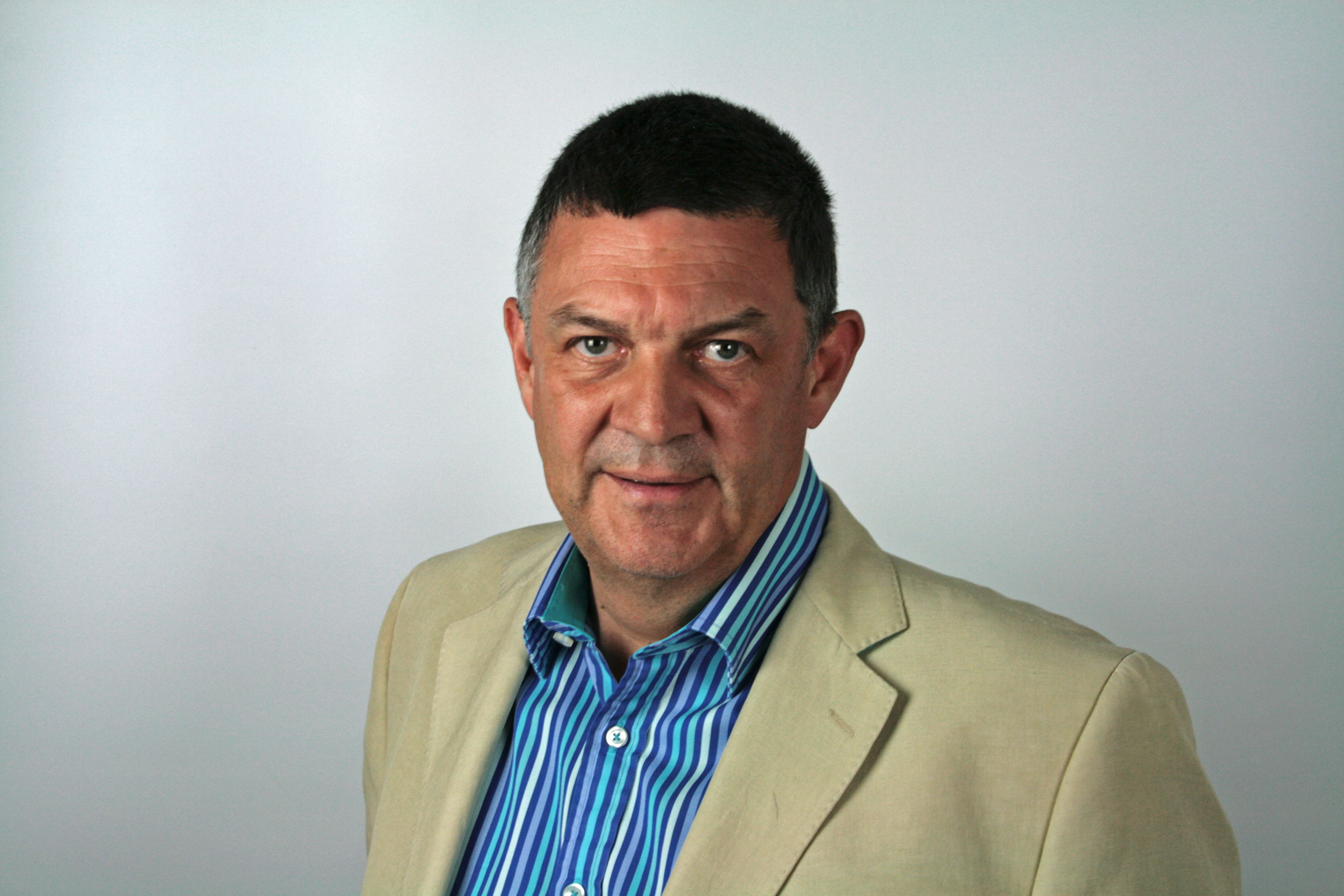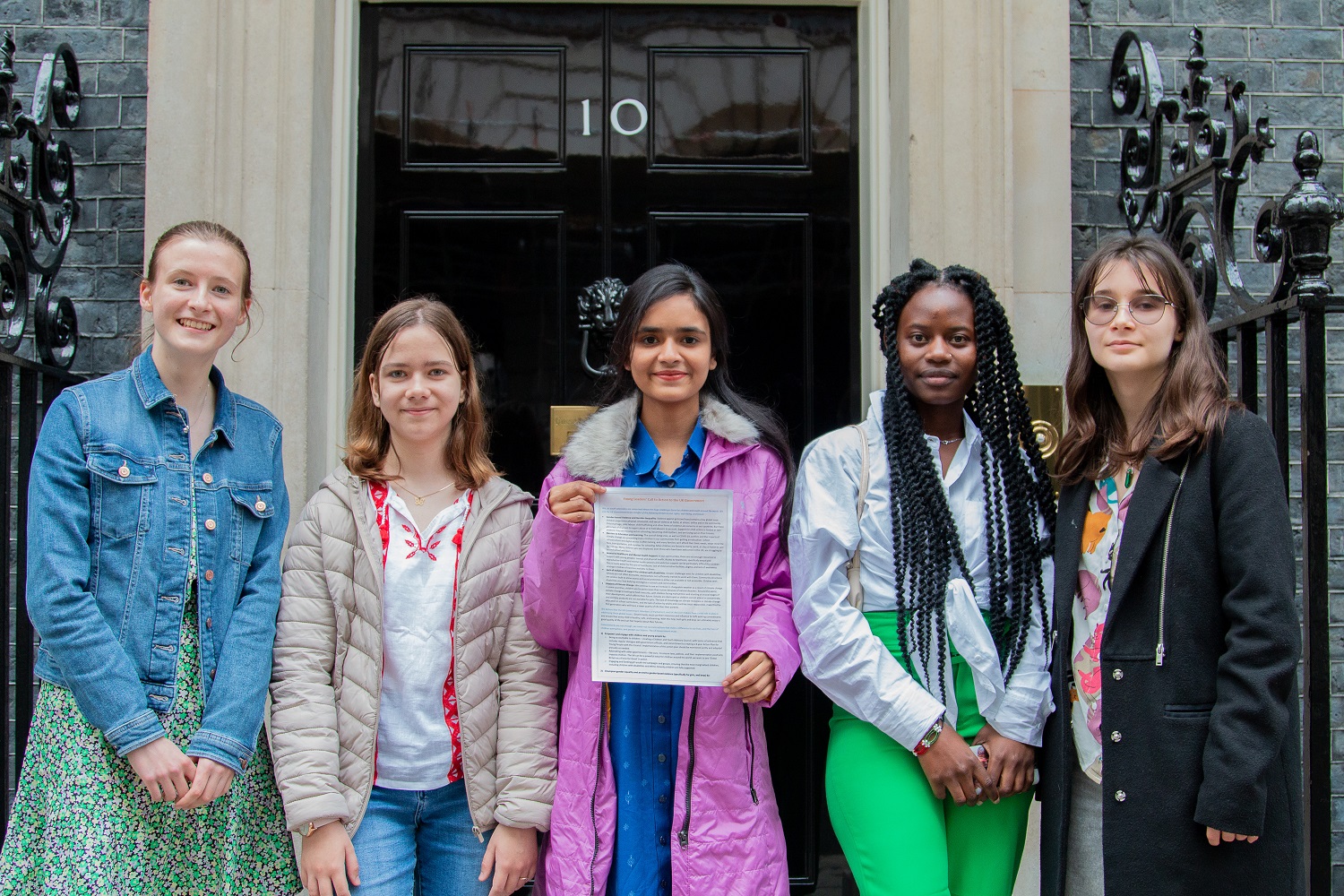
Children take part in decision making
Youth advocates join World Vision UK leaders in an intergenerational dialogue
For the first time, nine young people from Sierra Leone, Niger and the Democratic Republic of Congo have spoken directly to World Vision UK leaders about the impact of World Vision's work in their communities - and what the leadership team need to do more of, to ensure that children are heard in the decisions that help improve their lives.
Here, 18-year-old Tenema, from Sierra Leonne, reports on this groundbreaking event.
Recently I was thrilled to participate in an important meeting between World Vision UK leaders and young people – a rare occasion which saw children at the centre of the conversation. After months of preparations, we finally had a chance to dialogue with the top decision makers in World Vision UK. As an 18-year-old girl from Sierra Leone, I have been involved in some opportunities like this in the past and I am aware that children are also stakeholders when it comes to World Vision’s activities in our communities. We are the key people World Vision is focusing on and it is important for us to use our voice. We need to say what we are going through, because those who feel it, know it better.
So together with young people from the Democratic Republic of Congo, Niger and my fellow Sierra Leonians, we spoke to the World Vision UK Board of Trustees and the Strategic Leadership Team about our challenges and hopes for a better world for children. I was privileged to co-moderate the dialogue together with Aimy Gabriel, World Vision UK Adviser for Child Protection. In the dialogue, young people shared stories about some of the major issues we are currently facing in our day to day lives. Life has been particularly tough for us.

Tenema
18-year-old child activist, Sierra Leone.
Raising awareness amongst parents in Niger
13-year-old Amira from Niger said, “Child marriage is one of the biggest challenges we face, and this is very frequent in my country. One of the marriages lasted three months and they broke up. She also lost her household… so what will be the life of these children?” 17-year-old Zaraou, also from Niger, added, “We have many children that were displaced due to climate change and natural disasters, and this is something we can see in almost any city in my country.”
In response to some of the issued faced by children in Niger, youth activists are helping children to understand their rights and are also raising awareness among parents. They are campaigning with local authorities and organising debates to make them aware what issues children are facing and what they can do to help their community.
Youth engaging with communities to bring change in Sierra Leone
In Sierra Leone, “One of the challenges children are facing has to do with children living in poverty – it is a driver of child labour and also teenage pregnancy because when there is no money, families and caregivers are likely to give away their girls to be married, to lessen the burden,” said 17-year-old Williams. Child labour is very common and children are often found working in dangerous environments such as mines. “Child mining is too much and affects children - children cannot attend their schooling because they have to provide food for their family,” added 17-year-old Haja.
Fellow youth activists in Sierra Leone have been engaging with community health workers to promote better nutrition for young children through exclusive breast feeding, helping with backyard gardening and savings for transformation. The children’s clubs are also helping to raise awareness on harmful traditional practices such as FGM (Female Genital Mutilation). The members of the children’s clubs also visit the one-stop centre to see how many children who were abused are receiving help.
Young people can be changemakers
Children often suffer the most as a result of these threats, and yet often we are not invited nor heard when decisions are being made on these issues. It is true, we are not quite like experts – but we have something to say about how these issues have affected us. And, we also have some ideas on the solutions! In fact, in the discussion, we told World Vision UK leaders about some of our efforts to help our communities overcome these challenges.
Yes, young people can be changemakers! We asked World Vision UK leaders to include children and young people when they are making decisions about their strategies and programmes. Abubakarr, Williams, Haja and Mariama, all 17-years old, from Sierra Leone asked World Vision UK to support children’s advocacy, include them at international forums and that World Vision should consider having children’s representatives in their Board meetings.
The youth panellists also said they want to be given opportunities to share the impact of World Vision’s programmes with their supporters across the world. For example, 18-year-old Lucienne, from DRC, told us about her advocacy work with young girls, where she shares the challenges of teenage pregnancy and its effects on one's education after experiencing it herself at the age of fifteen. She said, “I advise other girls who are like me, to do their best to go back to school and finish school, which will improve their tomorrow...”Because she learned, through World Vision’s support, that it’s not too late for any child. Like Lucienne, we can give a good testimony of how World Vision’s work is giving young people hope, and we can make great partners, not only participants and recipients of their support.
World Vision UK leaders commit to listen to the youth
It was such a valuable engagement for young people like me and I am proud to have been a part of it. I also gained so many insights and built new connections with my fellow youth. I was inspired to hear how World Vision UK leaders are keeping their promises to listen to children through this dialogue. They asked our opinions about what World Vision should do more for children in our communities and how they can better listen to children.I was encouraged by how they responded to our questions and assured us that they are listening. Not only that, but they have also committed to giving us a formal response so that we can share the outcomes with our peers!
World Vision UK CEO, Mark Sheard said, “We really appreciate you… and the confidence with which you have spoken and clarity you have given us about your issues and the challenge you have put forward for us. World Vision should be an organisation wherein young people should have a say in running it and determining what needs to be done.” He also promised that they will listen and work out how they can turn our recommendations into actions. Speaking on behalf of the Trustees, Catherine Taylor also assured us that they will“take time as a Board to reflect on what’s been discussed and what changes need to be made as a result. And also how the feedback on the impact of this conversation will influence us going forward, as well as how we can keep up this dialogue going.”

Mark Sheard
World Vision UK CEO
Nelson Mandela, one of the greatest African heroes once said, "Our children are the rock on which our future will be built, our greatest asset as a nation…the true character of society is revealed in how it treats its children.” I am hopeful that this dialogue is only the beginning of more opportunities for young people to influence World Vision’s work.If leaders around the world say they are working to make this world a better place for children, know that we are here and we also have something to offer, so please count us in!
You can find out more about what some of the children think World Vision should do in the video below.
Tenema is an 18-year-old child activist and a young journalist in World Vision Sierra Leone. She is currently studying Political Science and International Relations at university. She has engaged in several campaigns, sensitisation and radio discussion programmes to raise awareness on issues that affect children.



